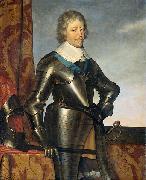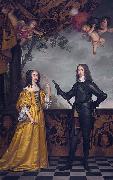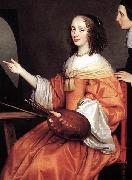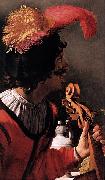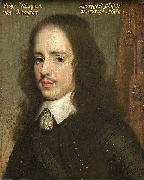|
||||||||||
|
|
||||||||||
|
Frederik Hendrik (1584 - 1647), prince of Orange Gemälde ID:: 93122 Siehe Galerie in Schweden |
Frederik Hendrik (1584 - 1647), prince of Orange 1650 Medium oil on canvas Dimensions 125 X 102 cm (49.2 X 40.2 in) cjr 1650 _ Medium_oil_on_canvas _ Dimensions_125_X_102_cm_(49.2_X_40.2_in) _ cjr |
|||||||||
|
|
||||||||||
|
Willem II (1626-50), prince of Orange, and his wife Maria Stuart Gemälde ID:: 93123 Siehe Galerie in Schweden |
Willem II (1626-50), prince of Orange, and his wife Maria Stuart 1647 Medium oil on canvas Dimensions 302 X 194.3 cm (118.9 X 76.5 in) cjr 1647 _ Medium_oil_on_canvas _ Dimensions_302_X_194.3_cm_(118.9_X_76.5_in) _ cjr |
|||||||||
|
|
||||||||||
|
Detail of Margareta Maria de Roodere and Her Parents Gemälde ID:: 93673 Siehe Galerie in Schweden |
Detail of Margareta Maria de Roodere and Her Parents Date 1652 TTD Date_1652_ TTD |
|||||||||
|
|
||||||||||
|
The Concert Gemälde ID:: 94936 Siehe Galerie in Schweden |
The Concert Date between 1626(1626) and 1630 TTD Date_between_1626(1626)_and_1630 _TTD |
|||||||||
|
|
||||||||||
|
Portrait of William II, Prince of Orange Gemälde ID:: 94937 Siehe Galerie in Schweden |
Portrait of William II, Prince of Orange Date circa 1653(1653) (1647-1663) Medium oil on panel Dimensions 30 x 24.1 cm (11.8 x 9.5 in) TTD Date_circa_1653(1653)_(1647-1663) _ Medium_oil_on_panel _ Dimensions_30_x_24.1_cm_(11.8_x_9.5_in) _ TTD |
|||||||||
|
|
||||||||||
| Vorheriger Künstler Nächster Künstler | ||||||||||
|
|
||||||||||
| Gerard van Honthorst | ||||||||||
| (November 4, 1592 - April 27, 1656), also known as Gerrit van Honthorst and Gherardo della Notte, was a Dutch painter of Utrecht. He was brought up at the school of Abraham Bloemaert, who exchanged the style of the Franckens for that of the pseudo-Italians at the beginning of the 16th century. Margareta Maria de Roodere and Her Parents by Gerrit van Honthorst (1652) Oil on canvas, 140 x 170 cm. Centraal Museum, UtrechtInfected thus early with a mania which came to be very general in the Netherlands, Honthorst went to Italy in 1616, where he copied the naturalism and eccentricities of Michelangelo da Caravaggio. Home again about 1620, after acquiring a considerable practice in Rome, he set up a school at Utrecht which flourished exceedingly. Together with his colleague Hendrick ter Brugghen, he represented the so-called Dutch Caravaggisti. In 1623 he was president of his gild at Utrecht, where he had married his cousin. He soon became so fashionable that Sir Dudley Carleton, then English envoy at The Hague, recommended his works to the earl of Arundel and Lord Dorchester. In 1626 he received a visit from Rubens, whom he painted as the honest man sought for and found by Diogenes. | ||||||||||
|
|
||||||||||
IntoFineArt Co,.Ltd.








